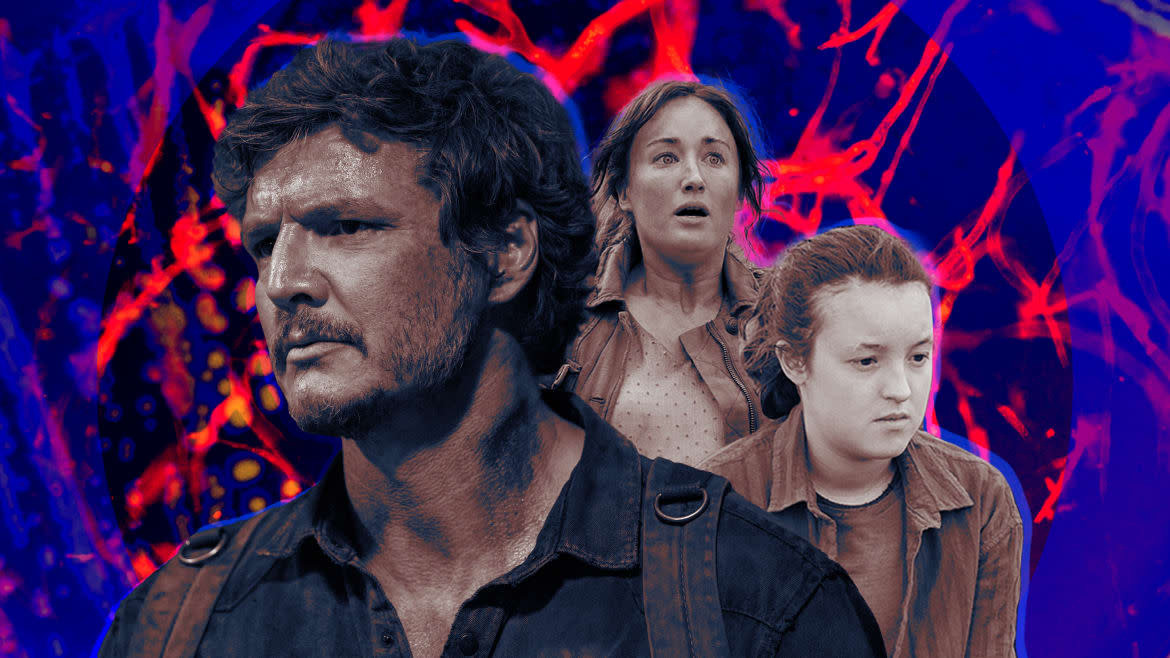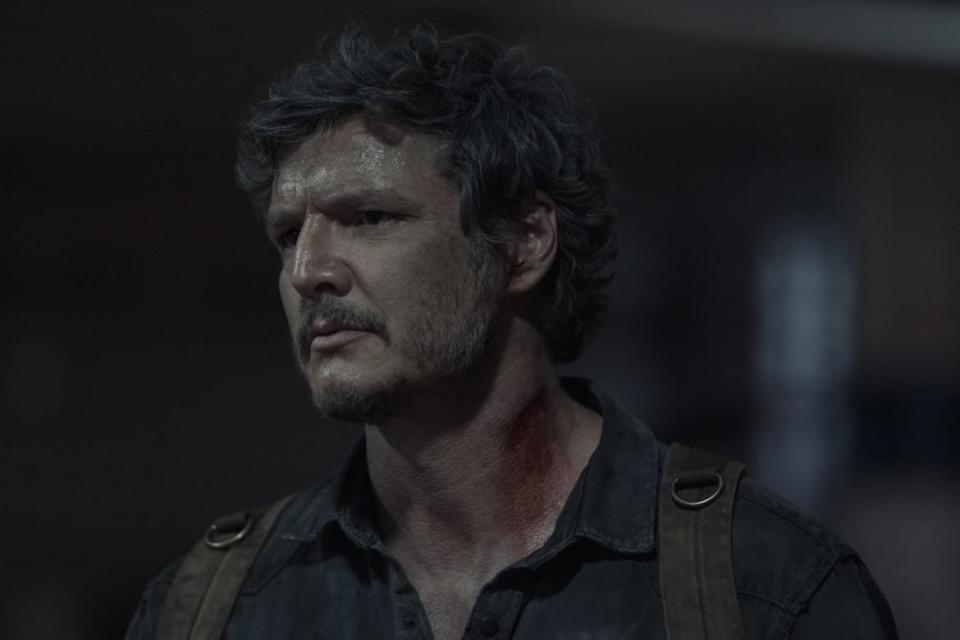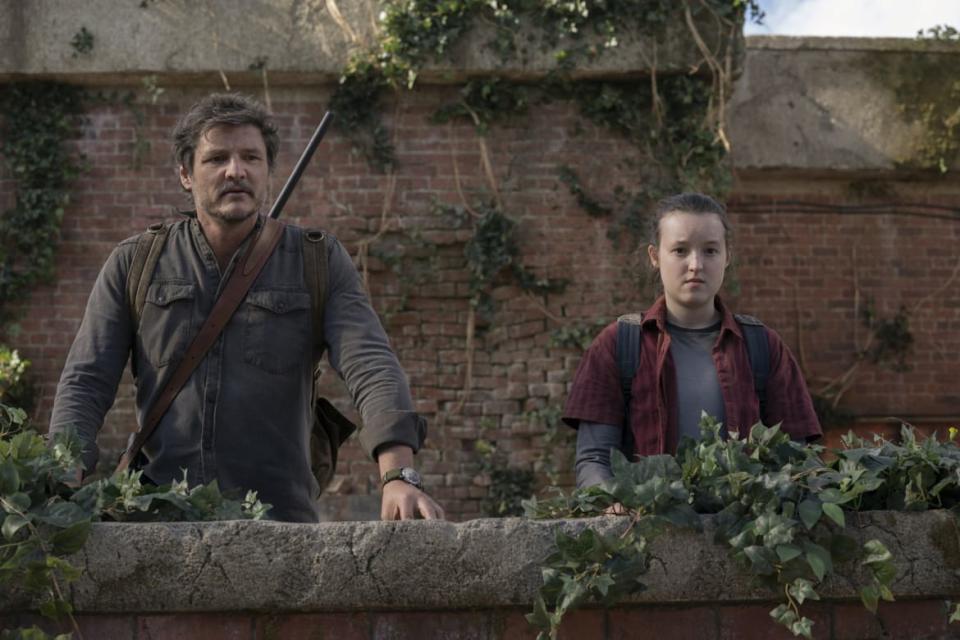‘The Last of Us’ Connected Everything in One Grand Finale

Love can be selfish, cruel, and catastrophic, as Joel (Pedro Pascal) proved in the bombshell Season 1 finale of The Last of Us, Craig Mazin and Neil Druckmann’s stellar adaptation of the hit PlayStation video game. Faced with a choice between saving the world and saving Ellie (Bella Ramsey)—as well as himself—the battle-scarred father figure opted for the latter, refusing to sacrifice the one thing that has given his life meaning.
At once heartening and heartbreaking, his choice serves as an ethically compromised punctuation mark on the pair’s journey of regeneration. Ultimately, it’s the very moment the show was setting up with each step along its post-apocalyptic path.
Warning: Spoilers for the season finale of The Last of Us below.
‘The Last of Us’ Episode 9 Recap: Big Little Lies
In the aftermath of her run-in with David (Scott Shepherd) and his oh-so-hungry disciples, Ellie and Joel reach the hospital base, where Firefly leader Marlene (Merle Dandridge) thinks a cure for the fungal outbreak can be manufactured with the aid of immune Ellie. The catch of all catches awaits them, however: With Ellie unconscious and prepped for surgery, Joel learns that the only way to derive a remedy is by removing the infected part of Ellie’s brain, which will kill her.
Having found his spirit renewed by Ellie, a surrogate daughter who soothes the wound of his biological offspring Sarah’s (Nico Parker) death, Joel balks at this deal. Instead, he rescues Ellie by murdering everyone in the facility (including Marlene). That wrong leads to another when, once safe, Joel lies to Ellie to shield her from the horrible truth. It’s an attempt to maintain a closeness that—in the episode’s final frames, with Ellie accepting this account with a hint of skepticism—appears far from guaranteed.

Joel’s actions throw into sharp relief The Last of Us’s primary theme: the potentially hazardous lengths people will, and should, go to for love. In doing so, it reveals that each of the season’s preceding, seemingly episodic narratives served as formative experiences for Joel, providing him with examples about how to behave. Without ever fully tipping their hand, Mazin and Druckmann crafted their saga as a series of encounters with unique characters, each one grappling with a version of the dilemma Joel was destined to tackle. In hindsight, his massacre resonates not as a stunning outlier but as the culmination—and fullest expression—of the show’s belief in love as a force capable of both profound creation and destruction.
The Last of Us establishes its guiding focus from the get-go, when Tess (Anna Torv) is bitten by an Infected and demands that Joel carry onward with their mission to transport Ellie to the Fireflies. Joel wants nothing to do with Ellie or this task, content to remain in his calloused cocoon of anger and self-loathing. Nonetheless, he accepts both Ellie and this undertaking, out of his staunch devotion to Tess. As the show subsequently details in incremental fashion, that decision winds up being a wise one; Joel soon develops paternal feelings for Ellie and, in the process, gradually reverts to something resembling his old self.
Frank (Murray Bartlett) and Bill’s (Nick Offerman) story, back in the third episode, is a riff on that same tale: Reclusive misanthropic survivalist Bill jeopardizes his safety to let stranger Frank into his home and, gradually, his heart. It’s a choice that Bill never regrets, and which pays transformative dividends for him, demonstrating that love trumps everything else and should be sought after—and clung to— no matter the consequences.
‘The Last of Us’ Episode 9 Recap: Big Little Lies
Frank makes that plain in his farewell note to Joel, writing, “I’m gonna tell you something because you’re probably the only person who will understand. I used to hate the world and I was happy when everyone died. But I was wrong, because there was one person worth saving. That’s what I did. I saved him. Then I protected him. That’s why men like you and me are here. We have a job to do, and God help any motherfuckers who stand in our way.”
In light of how The Last of Us wraps up its maiden season, it’s impossible not to view that message as more than just foreshadowing. It’s a pivotal, inspirational moment for Joel, informing him on what he should want and prioritize, as well as how he should act. Those lessons are then reinforced by his encounter with Henry (Lamar Johnson), a young Kansas City resident, who’s hiding out from rebel leader Kathleen (Melanie Lynskey).
Henry betrayed Kathleen’s brother by ratting him out to FEDRA, to get necessary leukemia medication for his deaf brother Sam (Keivonn Montreal Woodard); though the siblings come to a dire fate, Henry’s treachery is born from love. Quite simply, when confronted with an unbearable moral predicament, he elects to protect his brother at any terrible cost. That’s something that doesn’t go ignored by Joel.

Even the penultimate episode speaks to this question, no matter that Joel himself is largely MIA from the proceedings due to his recovery from a gunshot wound. David, a preacher whose cult is in increasingly dire straits, admits to Ellie that, to stave off starvation, he did what was necessary to care for his flock: namely, resort to cannibalism.
It’s a monstrous option, and yet in keeping with the show’s fascination with characters committing grave deeds on behalf of their beloved charges. David is a fiend, further underscored by his pedophilic interest in Ellie. But in the context of this series, his measures are just a more extreme form of those perpetrated by the other people Joel and Ellie meet during their cross-country trek.
Each of these pre-finale chapters is grimmer than the last. While Tess and Bill afford (relatively) optimistic models about the benefits of putting love first, Henry and David are cautionary-tale warnings about that tack’s pitfalls. Consequently, when Joel makes his doomsday-grade Sophie’s Choice, the series completes its thematic trajectory from qualified, bittersweet hope to conflicted, irresolvable despair.
‘The Last of Us’ Soaked the Average Coming-of-Age Story in Blood
Joel would rather let the world burn than continue existing in it without Ellie, and the haunting power of The Last of Us’s dénouement is that there’s neither a correct nor easy way to judge what he’s done. Joel places his own rebirth ahead of that of humanity, and if that is greedy, short-sighted, and selfish, it’s also touching and, in a twisted way, selfless. Insofar as he’s willing to bear an onerous burden in order to save Ellie, at least.
In the end, The Last of Us plays almost like a revisionist take on the New Testament, with God-like dad Joel opting not to sacrifice his chosen family for the sake of mankind. Whether that’s right or wrong, commendable or damnable, it’s the thorny conclusion Mazin and Druckmann’s sterling show was building to from the start.
Get the Daily Beast's biggest scoops and scandals delivered right to your inbox. Sign up now.
Stay informed and gain unlimited access to the Daily Beast's unmatched reporting. Subscribe now.


